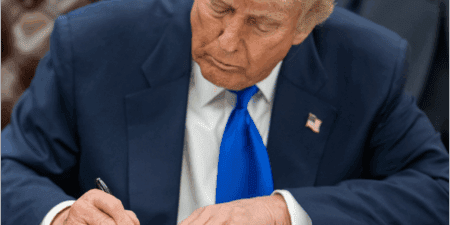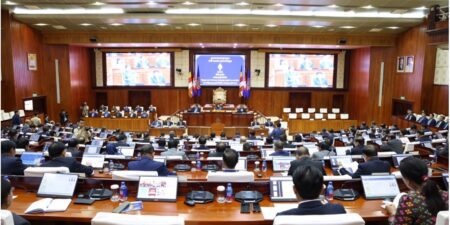BGA Senior Adviser Amb. Larry Greenwood and Singapore Managing Director Nydia Ngiow wrote an update to clients on what to expect ahead of the 2023 Asia-Pacific Economic Cooperation (APEC) Leaders’ Meeting.
Context
- The United States will host the 2023 APEC Leaders’ Meeting from November 11-17 in San Francisco. The summit will include a meeting of the 21 APEC leaders, a joint foreign and trade ministers’ meeting, a finance ministers’ meeting and other high-level side events and bilaterals. In keeping with APEC tradition, a robust private sector presence is expected. Engagements include a meeting of the APEC Business Advisory Council and a dialogue with the leaders; the APEC CEO Summit, which gathers thousands of senior business executives from around the Indo-Pacific; and hundreds of business-sponsored programs and events.
- The United States organized the year around three “I’s”: interconnected, regarding supply chain resilience in particular; innovative, with a large focus on new climate-related technologies and artificial intelligence (AI); and inclusive, which continues APEC’s work on women empowerment and micro, small and medium-sized enterprises and accelerated work on indigenous people and other marginalized groups.
Significance
- The leaders’ meeting, which is the culmination of hundreds of working-level meetings and 10 ministerials this year, will discuss a broad range of issues that Washington has teed up under the banner, “A Resilient and Sustainable Future for All.” Major themes include how to reach net-zero carbon goals, ensure a just energy transition, strengthen supply chain resilience, better prepare for the next pandemic, help small business, digitalize the economy, bolster food security and empower women and marginalized communities. The business community will use the week to lobby for measures to boost trade and investment, particularly for environmental goods and services; support renewable energy investment; facilitate cross-border data flows; implement paperless trade; and promote the biocircular economy through appropriate regulation.
- As in the past, meetings on the margins of the APEC summit will garner as much and probably more attention than the summit itself. Some notable engagements this year include a highly anticipated meeting between U.S. President Joe Biden and Chinese President Xi Jinping and an announcement substantially concluding the Indo-Pacific Economic Framework (IPEF) negotiations. The United States and Japan will hold their second Economic Policy Consultation Committee Ministerial chaired by U.S. Secretary of State Antony Blinken and Commerce Secretary Gina Raimondo.
Implications
- Unable to make any substantive progress on the digital economy agenda because of differences with China and other economies on areas such as data transfers, data privacy and cybersecurity, the United States instead hosted hundreds of workshops and side events throughout the year. Topics included digital trade, digital medicine, cybersecurity, the cloud, data privacy, the skills gap, good regulatory practices and AI. The goal was to show that closed and fragmented internet governance, restrictions on data flows and forced localization of data are harmful to innovation and the digitalization of APEC economies and would make APEC economies less competitive.
- IPEF members are expected to announce the conclusion of negotiations for Pillars 3 (clean economy) and 4 (fair economy) following the substantial conclusion of supply chain pillar negotiations in May. Substantial progress was made on both pillars during the sixth IPEF negotiating round in Kuala Lumpur from October 15-24, likely to result in an announcement on APEC’s sidelines that negotiators are now contemplating whether travel to San Francisco is still necessary.
- While this bodes well for the pillars led by the Commerce Department, questions remain over whether these agreements would provide tangible benefits to all parties, including industry. The nonbinding nature of these initiatives means that commitments made will not be fully enforceable, leading to additional questions regarding the final agreement’s impact. The brisk pace of negotiations also raises concerns over whether the parties have had sufficient time to thoroughly review the substance agreed to during the negotiations and whether their concerns were effectively addressed.
We will continue to keep you updated on APEC developments. If you have any questions or comments, please contact BGA Senior Adviser Amb. Larry Greenwood at lgreenwood@bowergroupasia.com. For specific questions about IPEF, please contact BGA Singapore Managing Director Nydia Ngiow at nngiow@bowergroupasia.com.
Best regards,
BGA Indo-Pacific Team

Managing Director, Global Trade and Economics
Nydia brings over a decade of experience working at the forefront of international affairs and international trade issues in the Asia-Pacific, with the majority of her career prior to BGA spent working for the Singapore government. Nydia most recently managed the China Program at the American National Standards Institute (ANSI) in Washington, D.C., where she brought together technical, business and policy leaders to find solutions to issues affecting U.S.-China trading relations to strengthen U.S. market access in China. She provided member organizations with coverage of policy and reform issues, and furthered ANSI’s relationships with counterpart organizations in China. Positioned in ...
Read More


























